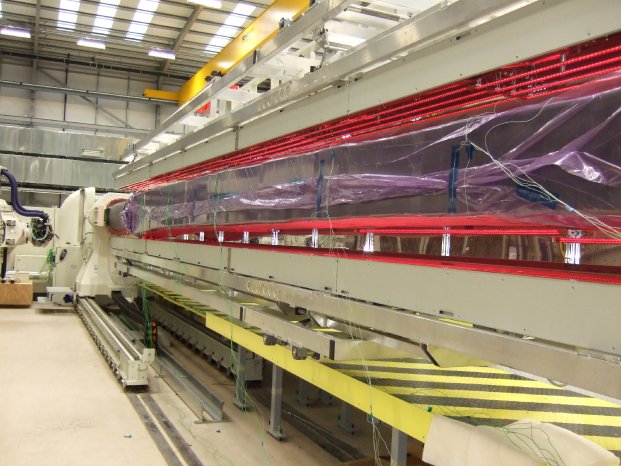GKN Aerospace is a world-leading, global first tier supplier of airframe and engine structures, components and assemblies to a wide range of aircraft and engine prime contractors and other first tier suppliers. It has invested £170 million to create its new composite wing structures manufacturing and assembly facility, which represents an international centre of excellence. The new "Western Approach" site consists of two main buildings. The first contains a state-of-the-art composites manufacturing operation that incorporates the latest, automated high-speed, precision production technologies. The second building houses an innovative and "moving line" assembly operation that uses automated, guided vehicles to move the wing structures through a series of semi-robotic work stations.
An important work package already underway at the site is the manufacture of the all-composite rear wing spars for the Airbus A350 XWB. Each of the three rear wing spars is manufactured by laying up pre-preg carbon composite tape on a mandrel and then curing the assembly in an autoclave. However, such complex lay down operations can sometimes produce wrinkling of the final surface because of voids and excess resin between plies or laminates. One proven answer to this problem is de-bulking, which involves enclosing the composite structure in a vacuum bag at various stages in its manufacture and then compacting or squeezing out of air and volatiles between plies or pre-preg laminates under moderate heat and vacuum to insure seating on the mandrel, to prevent wrinkles, and to promote adhesion.
GKN Aerospace's engineers decided that de-bulking could provide significant benefits and asked Heraeus to carry out initial trials using infrared emitters to provide the required heat. These were followed by on-site trials using a portable infrared system at Western Approach and these were so successful that a prototype system was supplied The prototype system was finally replaced by a scaled-up 465 kW production system, where each of the three heating sections now has seven controllable zones to provide precise surface heating.

